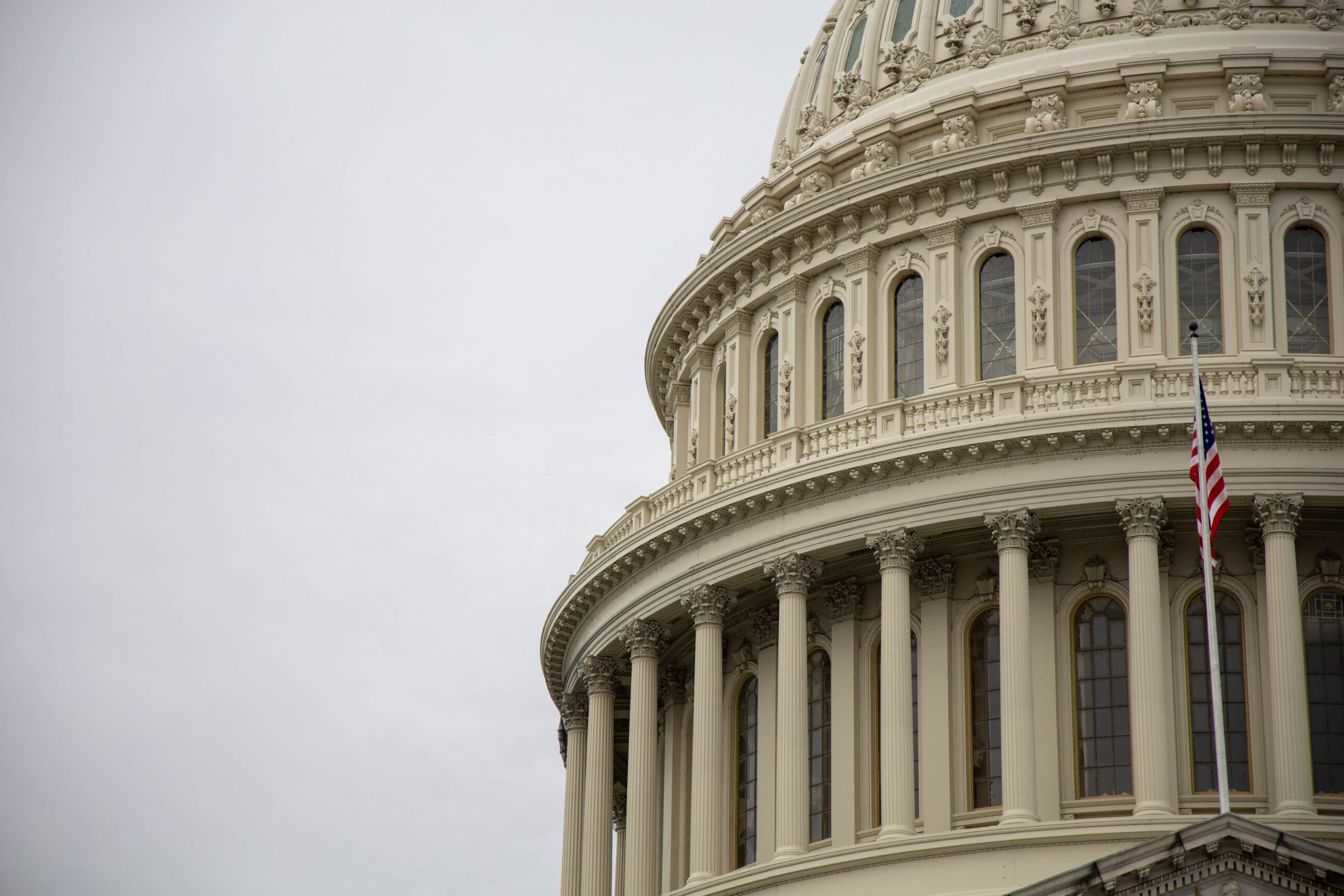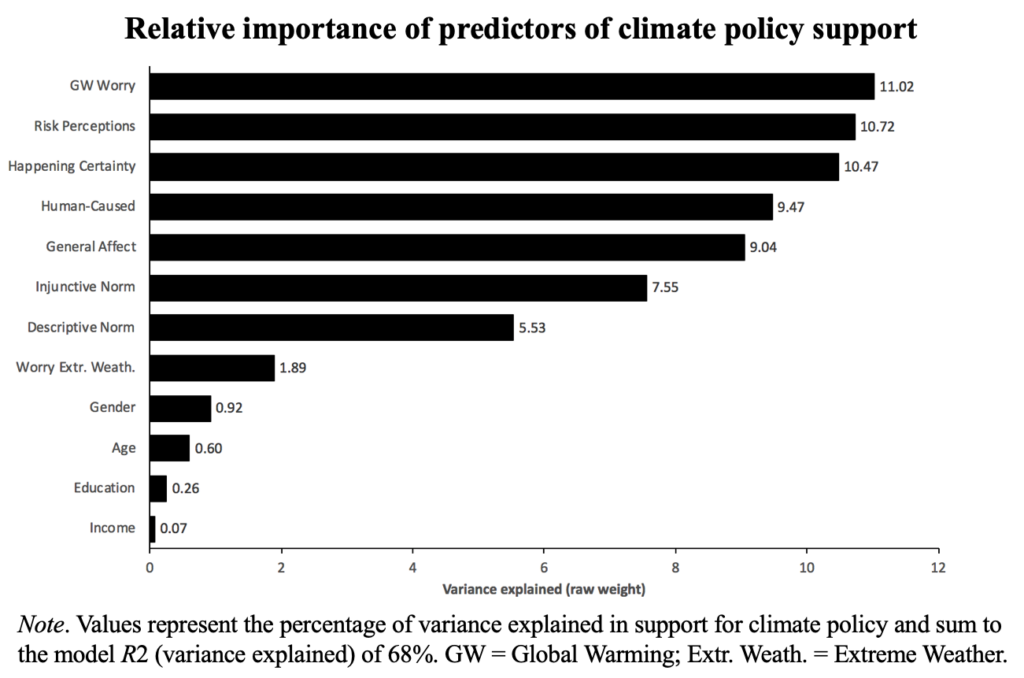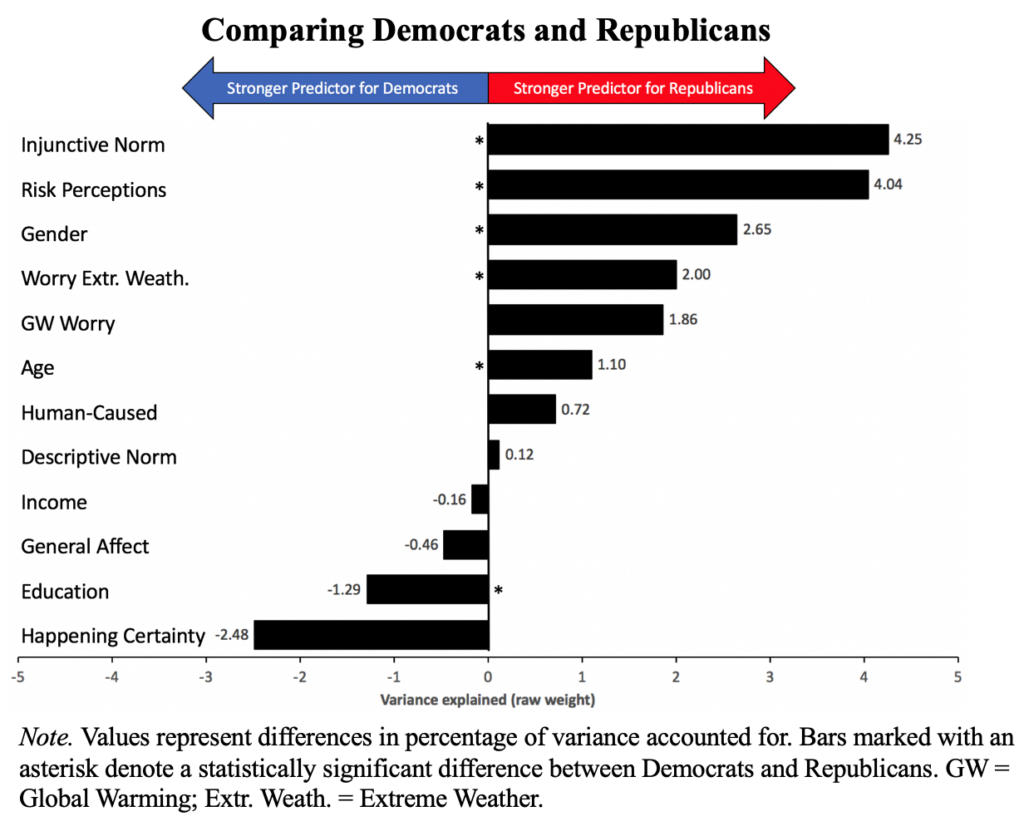Peer-Reviewed Article · Aug 24, 2020
What predicts public support for climate policy?
By Matthew Goldberg, Abel Gustafson, Matthew Ballew, Seth Rosenthal and Anthony Leiserowitz
Filed under: Policy & Politics

We are pleased to announce the publication of our new article “Identifying the most important predictors of support for climate policy in the United States” in the journal Behavioural Public Policy.
Reducing the risks of climate change will require strong climate policies. In turn, passing and implementing climate policies depends in part on public support. In our new study, we aimed to identify the most important predictors of public support for climate policy in the United States, and test which predictors are most important among Democrats and Republicans.
We found that, among registered voters, worry about global warming was the strongest predictor of climate policy support. We also found that climate change risk perceptions, beliefs (i.e., certainty that global warming is happening, that it is caused by human activities), negative affect, and social norms, accounted for a majority of the variability in climate policy support (see figure below). By contrast, demographic variables were weak predictors of policy support relative to emotions and beliefs about global warming.

When comparing the strength of these predictors across political parties, we found several significant partisan differences. Consistent with another study we recently published, perceived injunctive norms (i.e., the perception that family and friends think it is important that you take action on global warming) was a significantly stronger predictor of support for climate policy among Republicans than among Democrats. This was the largest partisan difference we observed in this study. The only variable that was a significantly stronger predictor among Democrats than Republicans was education. These results suggest that efforts to build policy support should communicate that climate change is happening, human-caused, and already having serious impacts. Among Republicans, communicators should also emphasize injunctive norms and the impacts of extreme weather.
These results suggest that efforts to build policy support should communicate that climate change is happening, human-caused, and already having serious impacts. Among Republicans, communicators should also emphasize injunctive norms and the impacts of extreme weather.
The full article is available here to those with a subscription to Behavioural Public Policy. If you would like to request a copy, please send an email to climatechange@yale.edu with the subject line: Request Climate Policy Support paper.